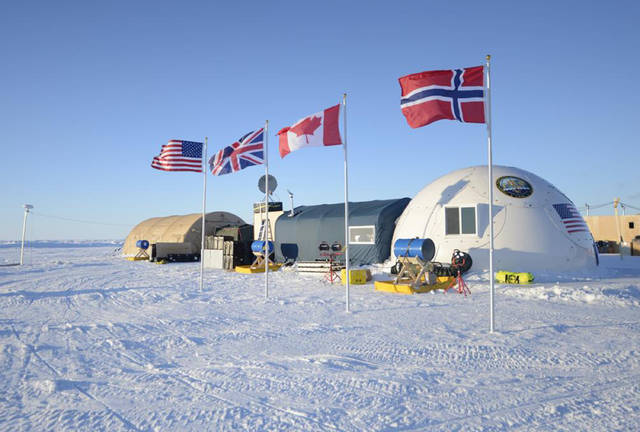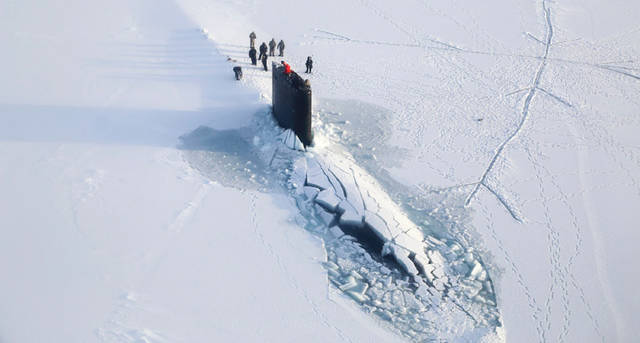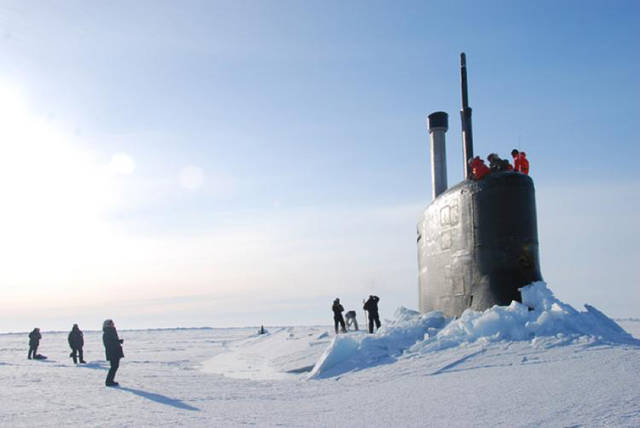ANCHORAGE, Alaska — The U.S. Navy has kicked off submarine testing and training under sea ice off Alaska’s north coast that takes place every other year and includes the surfacing of a submarine that punches through sea ice.
The exercises, which also include the collection of scientific data, are dubbed Ice Exercise 2018, or ICEX18, and will include maneuvers by three submarines under Arctic ice, including a British sub, over five weeks.
Rear Adm. James Pitts, commander of the Undersea Warfare Development Center, said in an announcement that the Navy builds experience with every ICEX.
“We are constantly testing new tactics, techniques and procedures under the ice and this exercise allows us to do so on a larger scale and alongside our U.K., joint and academic partners,” he said.
The cost is estimated at $8.3 million, said Navy spokesman Corey Barker, but final figures for travel, contracts and other expenses will not be known until after the exercise.
The Navy will set up a temporary camp on ice in the Beaufort Sea about 150 to 175 miles (242 to 282 kilometers) miles north of Prudhoe Bay, Alaska. Barker said gear for the camp started coming in over the weekend by air drop.
The camp will have portable tents that can house and support more than 50 people and will serve as a temporary command center for under-ice navigation, torpedo exercises and research.
The Navy named the camp Ice Camp Skate in honor of the USS Skate, the first submarine to surface through open-water surrounded by ice in 1958 and the first submarine to surface through ice at the North Pole in March 1959.
The U.S. submarines participating are the Seawolf-class fast attack submarine USS Connecticut from Bangor, Washington, and the Los Angeles-class fast attack submarine USS Hartford from Groton, Connecticut.
The British Royal Navy’s Trafalgar-class submarine HMS Trenchant also will be on hand.
The vessels will conduct multiple Arctic transits, a North Pole surfacing, scientific data collection and other training, the Navy said.
The exercise required approval for possible unintentional disruptions to marine mammal activities such as feeding, nursing and breeding. In its application to the National Marine Fisheries Service, the Navy said it will install portable tracking equipment for submarine training and testing near the ice camp.
As part of the exercises, eight hydrophones that detect sound waves under water will be lowered on cables from sea ice to 98 feet (30 meters).
The last Arctic exercise by the U.S. Submarine Force was conducted in 2016. A crack in sea ice through the command center camp forced its early evacuation.




